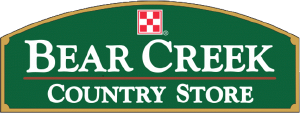Purina Enrich Plus Ration Balancing Horse Feed
 Purina Enrich Plus Ration Balancing Horse Feed adds necessary nutrients to your horse’s diet. Enrich Plus is a concentrated, pelleted ration that may be fed as a horse’s sole ration along with quality hay or pasture. This feed provides the proper balance of protein, vitamins and minerals without unnecessary calories. Purina Enrich Plus Ration Balancing Horse Feed can also be fed with unfortified whole grains.
Purina Enrich Plus Ration Balancing Horse Feed adds necessary nutrients to your horse’s diet. Enrich Plus is a concentrated, pelleted ration that may be fed as a horse’s sole ration along with quality hay or pasture. This feed provides the proper balance of protein, vitamins and minerals without unnecessary calories. Purina Enrich Plus Ration Balancing Horse Feed can also be fed with unfortified whole grains.
Horses need more nutrition than forage alone can provide. Today’s horses are typically limited to a single type of forage. Pastures in the same area or even different sections of the same pasture can have inconsistent nutrient values. Furthermore, unfortified grains such as straight oats and corn can also have variable amounts of nutrients. That’s why Purina is here to help you achieve the nutritional balance your horse once derived naturally.
Over the years, Purina’s purpose has never changed. They have always been driven to unlock the greatest potential of every animal. That’s why Purina’s love of beautiful, healthy, productive animals drives everything they do. As a result, the proof of their success can be found in barns and pastures everywhere.
Have questions? Contact our friendly staff. We’re here to help you find the right products for your farm and ranch and Show supply needs. We also invite you to stop by and shop our Bear Creek Country Store locations in Bells and Leonard, Texas.
Guaranteed Analysis
Crude Protein........MIN 32.00 %
Lysine........MIN 2.70 %
Crude Fat........MIN 5.00 %
Crude Fiber........MAX5 .50 %
Calcium (Ca)........MIN 3.25 %
Calcium (Ca)........MAX 4.25 %
Phosphorus (P)........MIN 1.60 %
Copper (Cu)........MIN 185.00 PPM
Zinc (Zn)........MIN 500.00 PPM
Vitamin A........MIN 18,000 IU/LB
Vitamin E........MIN 600 IU/LB
Selenium (Se)........MIN 2.0 PPM
Starch........MAX 5.00 %
Sugars........MAX 10.00 %
Neutral Detergent Fiber (NDF)........MAX 14.00 %
Acid Detergent Fiber (ADF)........MAX 8.00 %
Crude Protein........MIN 32.00 %
Lysine........MIN 2.70 %
Crude Fat........MIN 5.00 %
Crude Fiber........MAX5 .50 %
Calcium (Ca)........MIN 3.25 %
Calcium (Ca)........MAX 4.25 %
Phosphorus (P)........MIN 1.60 %
Copper (Cu)........MIN 185.00 PPM
Zinc (Zn)........MIN 500.00 PPM
Vitamin A........MIN 18,000 IU/LB
Vitamin E........MIN 600 IU/LB
Selenium (Se)........MIN 2.0 PPM
Starch........MAX 5.00 %
Sugars........MAX 10.00 %
Neutral Detergent Fiber (NDF)........MAX 14.00 %
Acid Detergent Fiber (ADF)........MAX 8.00 %
Feeding
Caution
Use only as directed. Follow instructions on label or bag.
For horses sensitive to dietary carbohydrates, please consult with a veterinarian or nutritionist for a recommended diet.
Best Results
- For horses sensitive to dietary soluble carbohydrates, please consult with a veterinarian or nutritionist for a recommended diet.
- The recommended feeding rate should not be exceeded.
- Feed at regular times.
- Do not feed more than 0.5 pounds per 100 pounds of body weight in one serving.
- Divide total daily feeding into at least two servings with three daily servings preferred.
- Be sure to weigh your feed using a scale. A small scale can be purchased in the fishing department of many sporting goods stores.
- Do not feed free-choice.
- Feed horse in a natural position from troughs placed at normal head height or lower.
- Reduce and/or delay feeding a horse that is hot, excited or showing pain, fever or diarrhea. Consult your veterinarian if any problems arise.
- Prevent rapid eating.
- Have plenty of fresh, clean water available at all times.
- Provide your horse with access to salt.
- Maintain a regular deworming program, have the horse's teeth examined annually and consult your veterinarian on a regular basis.
Changing To
- Make the feed change gradually over a period of 7 to 10 days.
- Mix the new feed with the old, gradually increasing the amount of the new feed while decreasing an equal amount of the old.
- Changes in the rate of feeding should not exceed 1 pound per day for each horse.
For horses sensitive to dietary carbohydrates, please consult with a veterinarian or nutritionist for a recommended diet.
Best Results
- For horses sensitive to dietary soluble carbohydrates, please consult with a veterinarian or nutritionist for a recommended diet.
- The recommended feeding rate should not be exceeded.
- Feed at regular times.
- Do not feed more than 0.5 pounds per 100 pounds of body weight in one serving.
- Divide total daily feeding into at least two servings with three daily servings preferred.
- Be sure to weigh your feed using a scale. A small scale can be purchased in the fishing department of many sporting goods stores.
- Do not feed free-choice.
- Feed horse in a natural position from troughs placed at normal head height or lower.
- Reduce and/or delay feeding a horse that is hot, excited or showing pain, fever or diarrhea. Consult your veterinarian if any problems arise.
- Prevent rapid eating.
- Have plenty of fresh, clean water available at all times.
- Provide your horse with access to salt.
- Maintain a regular deworming program, have the horse's teeth examined annually and consult your veterinarian on a regular basis.
- Make the feed change gradually over a period of 7 to 10 days.
- Mix the new feed with the old, gradually increasing the amount of the new feed while decreasing an equal amount of the old.
- Changes in the rate of feeding should not exceed 1 pound per day for each horse.
